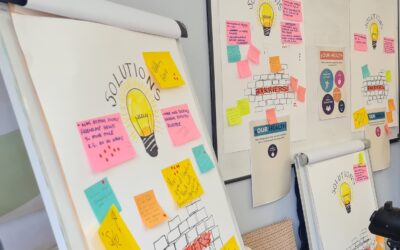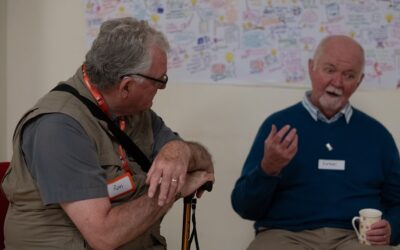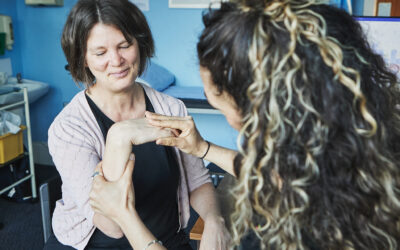How do we build personalised care into our services?
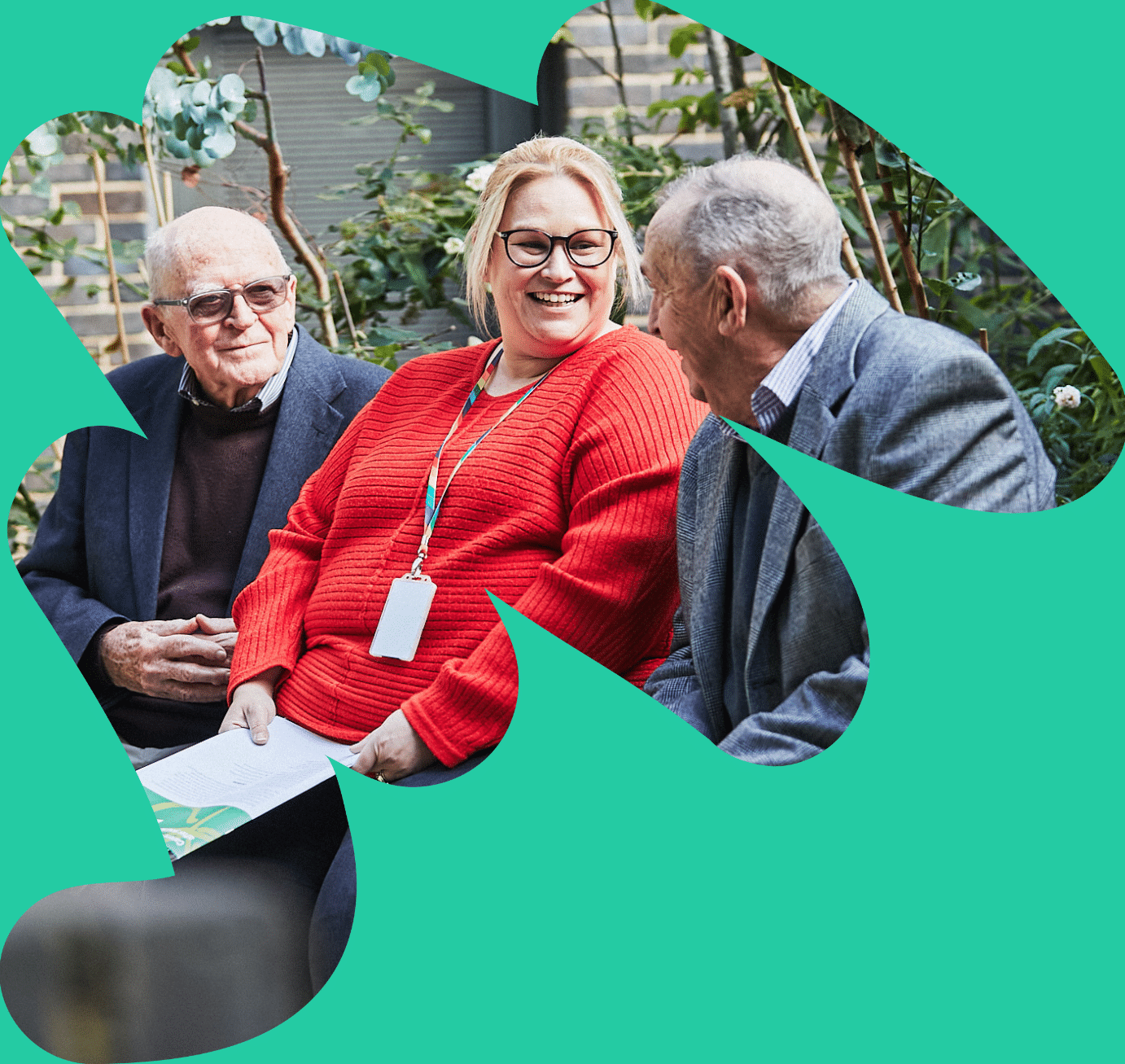
How does our Memory Assessment Service provide personalised care that makes a real difference to people?
In my first week at Here, I was sharing space with the Brighton and Hove Memory Assessment Team. I was privileged to hear one side of a conversation between one of our Memory Support Workers (MSW) and a person who was accessing the service for the first time.
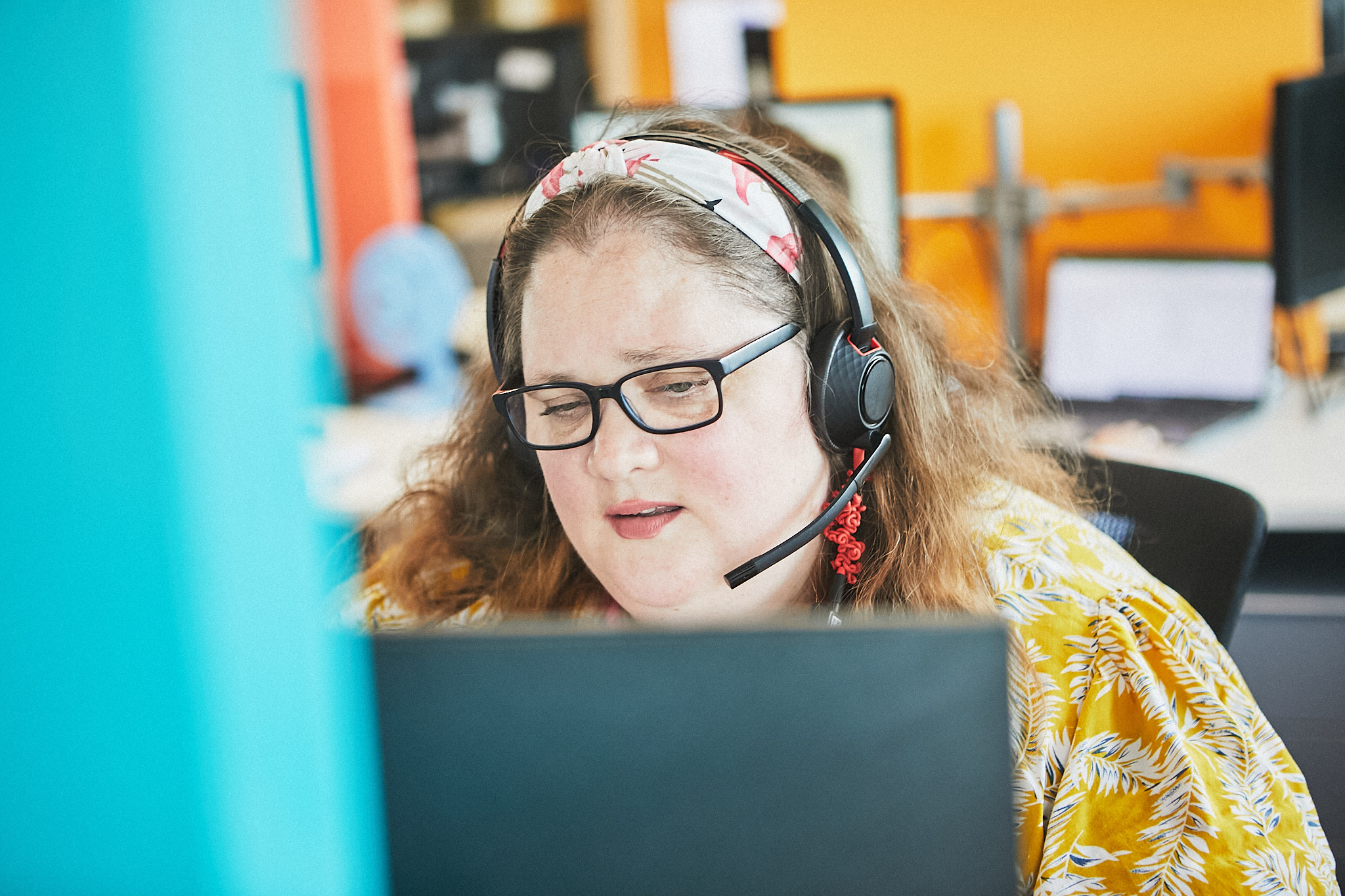
Can you say a bit about how personalised care is the foundation of the MAS?
Our Memory Assessment Service purpose is “To help me and my loved one get the care I need, to live my life well”. We designed the service around the understanding that everyone is different with different needs, but they also have strengths and assets. Having a memory assessment can be scary, we wanted to acknowledge this and think about how we provide our support to be built around people with the aim of offering the best experience for them.
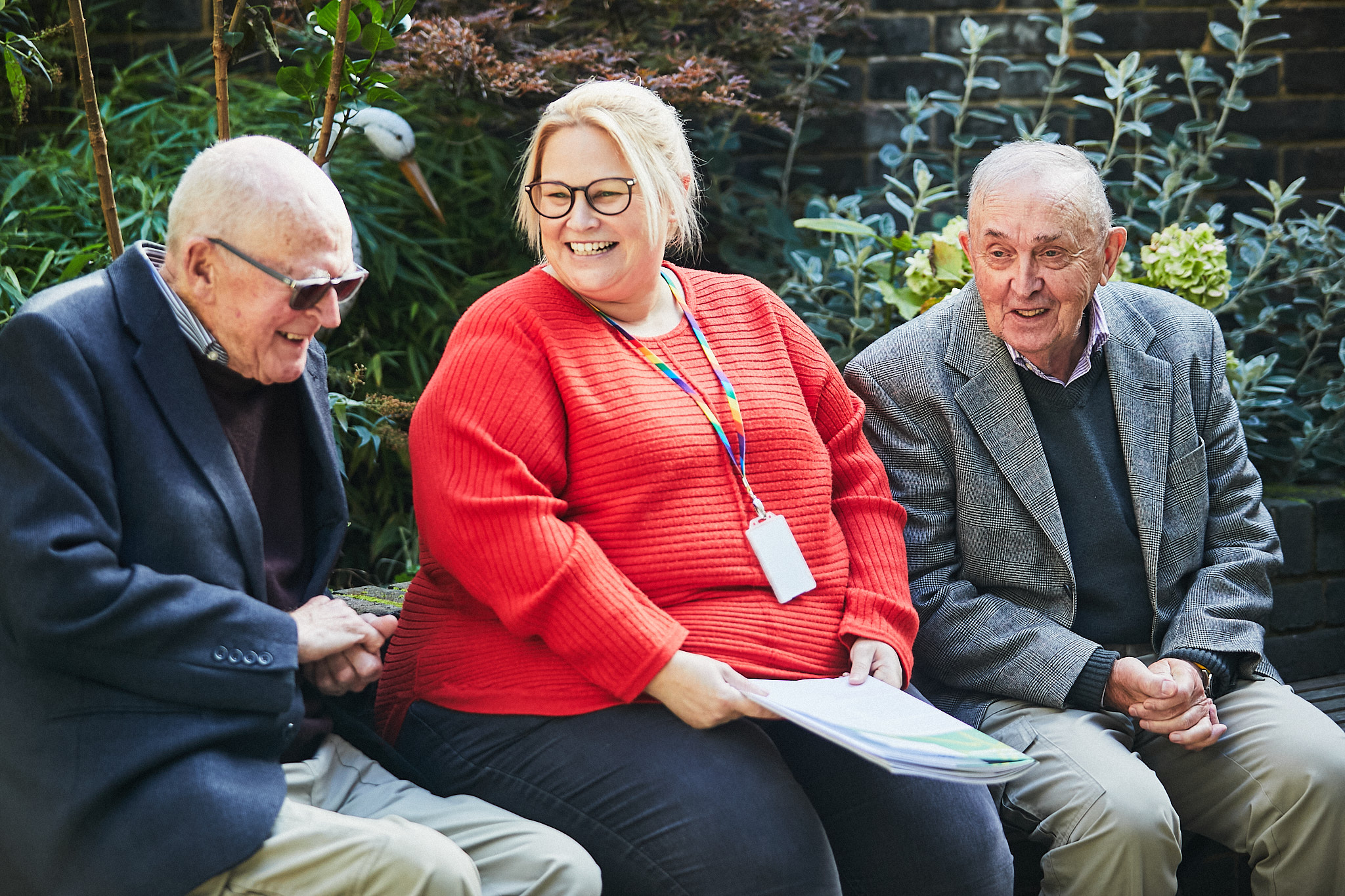
How do we apply those principles in practice? What does it practically mean in developing and running the service?
The main difference with the way we work is that we offer wrap-around support from a named Memory Support Worker (MSW) from the first contact call to assessment and care planning. That first contact call is really important. It’s a chance to build a relationship with someone. Our first contact call template is designed based on What Matters To You (WMTY) principles.
We ask the person about what they’re experiencing, what’s important to them, and who is important to them.
This lets us offer support based on their strengths and needs, for example, are they struggling with personal care or food, getting out of the house. These things can affect someone’s general health as well as their memory, and support offered at this point can really help people while they’re waiting for their assessment.
‘What’s important to you’ helps us understand what a priority for them in terms of diagnosis, treatment and support options. And ‘Who is important to you’ helps us to understand their support network and identify if they may be isolated and need extra outreach, or if families and loved ones need support also.
People get a letter with the details of their named MSW who will be with them throughout, and when they have their appointments with the clinician, the clinician will have access to the records from the MSW and vice versa, so it is seamless for the person.
If they do have a diagnosis, they then have a Care Planning appointment with their named MSW, who they will have known since the beginning, and the relationship they have built up helps create a really tailored care plan.
What roles do we have and how are they different? How do we train and support staff in MSW roles?
We developed our Memory Support Worker role to provide the pre and post diagnosis support and to be that named person all the way through.
When MSWs join us, they have a programme of shadowing across all the other roles in the service, from admin team to clinicians. They experience assessments and diagnosis appointments, and MDT (how the diagnosis is formulated). Then they shadow experienced MSW to learn about the different call types and how the templates guide you through. They see some of the scenarios that they might experience in their new role.
They learn about communication styles and how would you alter your communication style depending on the person and what they need.
They then have Guided Practice with an experienced MSW to either help during the call, or to feedback afterwards. This is helped by our technology allowing three-way calls. All MSWs have monthly 1-1 supervision and monthly group supervision with other MSW.
Group supervision is an opportunity to discuss cases, share learning and support each other, and to think about potential changes that we can make to improve the service.
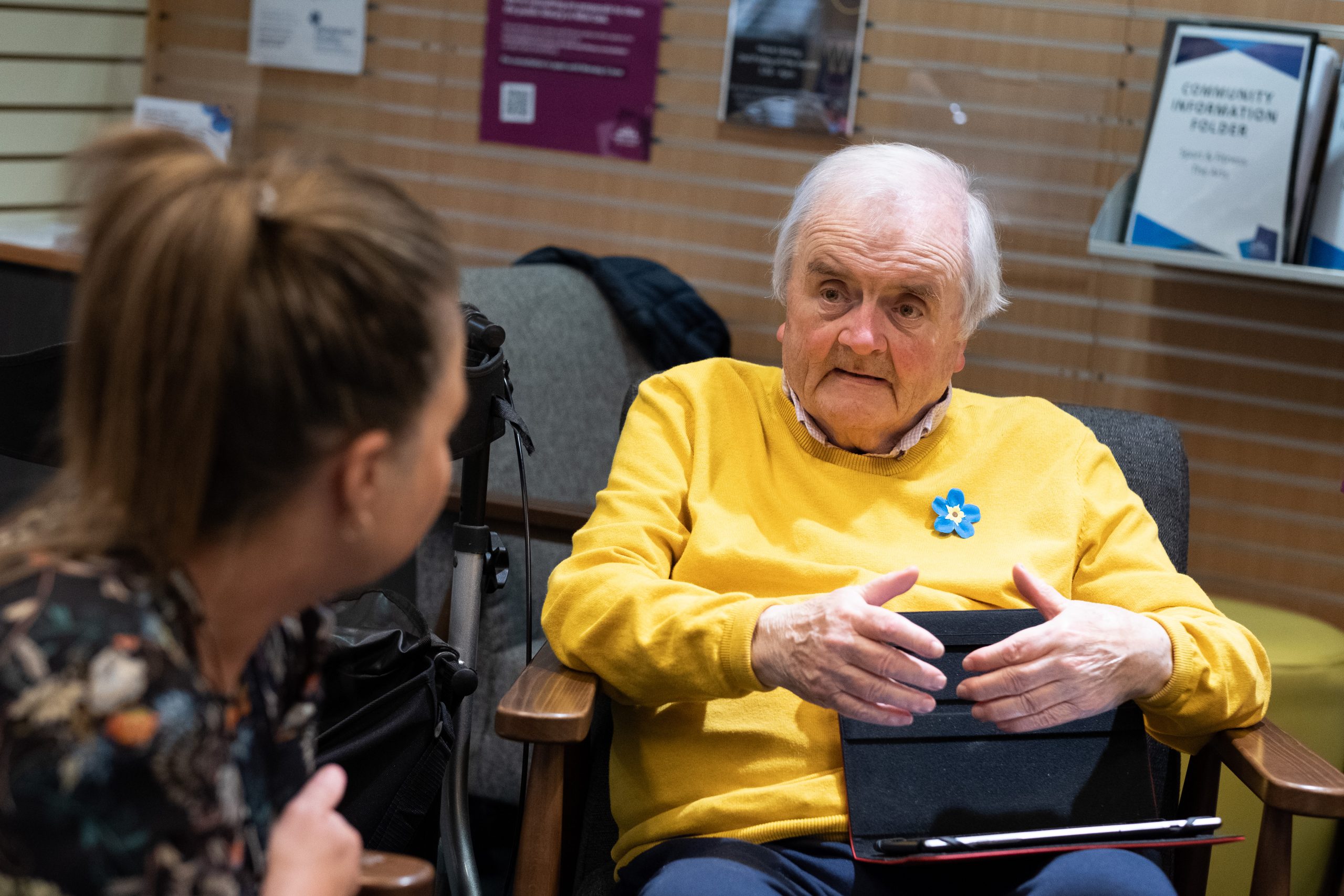
Are data and case management systems structured any differently to facilitate the WMTY approach?
We use SystmOne (S1) and the data and analytics team at Here are experts in design and use of S1 in clinical services and this has allowed us to build and continually evolve our templates in S1. As all staff are S1 users, all the relevant information about people we work with is accessible to everyone in the team.
Each appointment type has its own template which we’ve created and adapted as we’ve developed as a service. For example, with the First Contact Call template we have added in fields for demographics and reasonable adjustments to make sure we’re thinking about what the person might need, and offering adjustments such as the type of information they need or help getting to appointment, if someone’s religion means they need appointments on certain days, or if they have a preference for the gender of their clinician, and what their interpreting needs are.
On a service level we use PowerBI for reporting on deliverables and KPIs, but we also do additional analysis and add that to knowledge gathered through patient experience. This can help identify and address gaps, for example, we did some analysis by demographics and identified that the service possibly wasn’t meeting the needs of our LGBTQ+ patients.
We approached Switchboard Brighton & Hove LGBT Switchboard about collaborating together to understand better the needs of the local LGBTQ+ community. As a result of this learning, we then made changes to the language we used, it influenced our collection of demographic data by placing more importance on this group to help us provide more personalised care and support and in signposting/referring people to the most appropriate services for them. This is a start, and we want to carry on listening and improving our service in this way.
What challenges can it throw up, if any?
Everyone will be aware of the pressures that health and care, and voluntary sector organisations are under, and this does affect what we’re able to do. We try to be as proactive as possible, but there may not be capacity in the wider system to respond to this.
In terms of running the service, there is a risk of an emotional toll on staff because of the engagement with individuals that we offer. Helping our team to learn how to manage the impact on themselves of this work is key and I mentioned above the importance we place on 1-1 supervision and group supervision, which is really important for that emotional side of things as well as the professional or practical.
We also encourage informal peer support such as team chats, colleagues giving each other opportunities to debrief after difficult calls, and support from managers to take time to process situations if needed. In terms of leadership and always seeking to grow our practice, and develop our service, the NHS Sussex Personalised Care Network is a way to connect with others locally who are doing similar work.

What would be your recommendation for others starting on this journey?
In terms of developing a service in this way, it’s important to listen to the people using the service and take on board their thoughts and feelings.
When working with individuals, the key is really active listening and being purposeful about what recommendations or support offered, not offering all the things on the list, but focusing on one step at a time and going at the person’s pace.
Leadership in your organisation is key too, they have to really get and be committed to personalised care.
It’s the stories that bring it to life, showing the impact that you can have by working in this way.
When I worked as an MSW, I visited a person who was very isolated, couldn’t cook for himself, couldn’t get out because of steps up to his front door. We worked closely with Ageing Well service in Brighton & Hove, and they helped him with cooking, shopping, lunch clubs and then ultimately with a move into supported accommodation. He has a mobility scooter now and goes out nearly every day. He’s in a much better place.
Listening to what he wanted and what he was missing out on has had a massive impact on his quality of life and therefore on his condition.
I think it’s important to remember that people are not just their health condition, and that their wider social situation can have such a huge impact on their health and wellbeing.
Dementia is progressive, so it’s essential to focus on quality of life.
People can still live well, and it’s so rewarding to be able to help that happen.
The Sussex Personalised Care Network aims to:
- Improve workforce knowledge, skills and confidence in personalised care.
- Connect staff across the Sussex to create opportunities to grow, learn and lead on personalised care together.
- Share experience, resources and practical solutions to challenges.
- Demonstrate impact of Personalised Care for people, workforce and system.
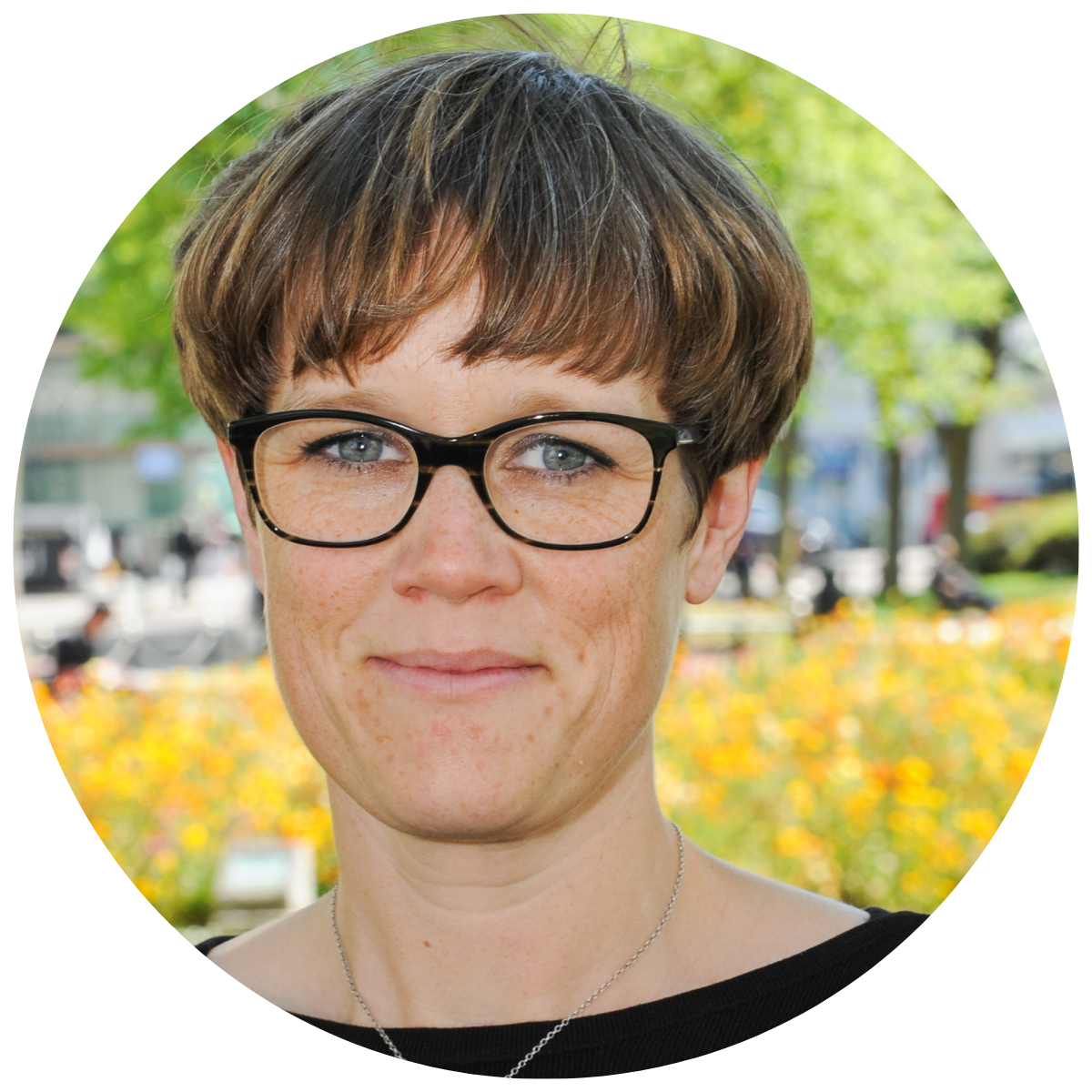
Also of interest
Rethinking Our Health: co-designing better support for long-term health conditions in Sussex
Introducing Rethinking Our Health – a new way of working with communities to support people living with long-term conditions.
The Health Builder difference: Redefining patient involvement
At Here, we believe that designing exceptional care means working in true partnership with the people who use our services. In this blog, Health Builder Norman Webster shares how our unique approach puts lived experience at the heart of service design and delivery.
Beyond the Diagnosis: What better care looks like for people with multiple conditions
People living with multiple long-term conditions often experience fragmented care. In this blog, we reflect on The King’s Fund’s latest report and share what we’ve learned about building services that support the whole person, not just a list of diagnoses.
